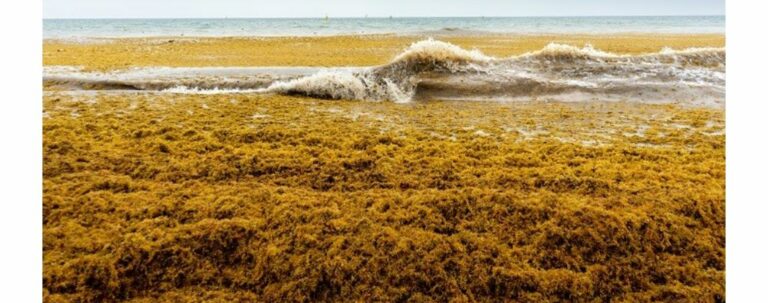UNESCO’s Intergovernmental Oceanographic Commission (IOC) has partnered with the United Nations Environment Programme (UNEP), the Global Partnership on Nutrient Management (GPNM), the IOC-SCOR GlobalHAB Programme and the Joint Group of Experts on the Scientific Aspects of Marine Environmental Protection (GESAMP) Task Team on Sargassum to organize a series of webinars on Sargassum in the Caribbean and West Africa.
The name Sargassum indicates a group of different species of brown macroalgae, commonly referred to as seaweed. Huge floating mats of Sargassum are home to, and source of food for a huge variety of sea life. However, sudden beaching of huge seaweed masses smother the coastline and form rotting piles on the shore. These “seaweed tides” can harm tourism-based economies, threaten aquaculture or disrupt traditional artisanal fisheries. The number of reports of these events in previously unaffected areas has increased worldwide in recent years. Nutrients overloads from agricultural runoff and wastewater discharge, rising of sea temperature and the change of sea currents induced by climate change are all factors that are believed to contribute to the breakout of these events.
By building on the outcomes of the recent Sargassum International Conference (Guadeloupe, October 2019), the series of webinars will present key challenges and responses to Sargassum tides in the Caribbean and West Africa, highlighting the potential for international cooperation. Regional initiatives such as those carried out by IOCARIBE will also be engaged in the sessions to provide a regional perspective.
The first webinar was held on Tuesday, 26 May and at least 3 more will follow over the remainder of 2020, leading up to an Open Science Meeting on Sargassum to be held in Mexico in 2021 and to the fifth United Nations Environment Assembly (UNEA-5) in February 2021.
Useful links:
For more information, please click here, or contact Henrik Enevoldsen (h.enevoldsen@unesco.org(link sends e-mail))

